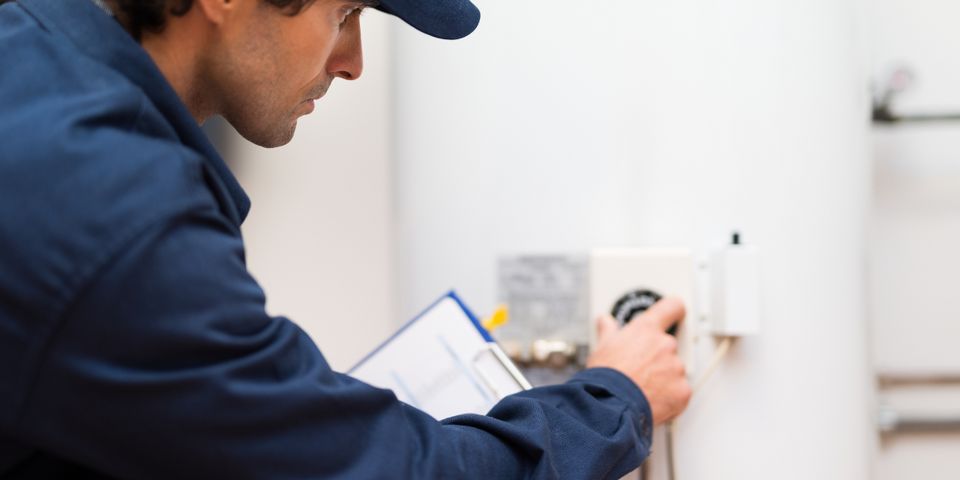How do you really feel about Is Your Water Heater Leaking??

A water heater is among one of the most vital fundamental appliances that can be found in a home. With hot water heater, you don't require to undergo the stress of home heating water manually every single time there is a need to wash, do the laundry, or the meals. However, there is constantly an opportunity that your water heater would certainly act up as with many mechanical devices.
It is essential to note any little malfunction as well as tackle it rapidly before points get out of hand. A lot of times, your water heater starts to malfunction when there is an accumulation of debris as a result of constant usage. As a preventative measure, routine flushing of your water heater is suggested to avoid sediment accumulation and prevent functional failure.
Typical hot water heater emergency situations as well as exactly how to manage them
Too little warm water
Managing a not enough supply of warm water can be discouraging. It might be that the water heater can not support the hot water need for your apartment. To manage this issue, you could attempt to change your heater's temperature level dial and also wait for a couple of minutes. If the problem continues, you can ask for the assistance of a professional plumber. Alternatively, you can update your water heater to one with a larger capacity.
Fluctuating water temperature level.
Your water heater might begin producing water of different temperature levels usually ice hot or cool hot. There might be a requirement to replace either the home heating or the thermostat unit of your water heating unit.
Leaky water heater tank.
In this situation, you need to transform off your water heating unit, enable it to cool down, as well as very carefully look for the resource of the issue. At times, all you require to do is to tighten a few screws or pipe links in situations of small leakages. If this doesn't work as well as the leakage continues, you might require to employ the services of a specialist for a suitable replacement.
Tarnished or odiferous water
When this occurs, you require to understand if the issue is from the water or the storage tank resource. If there is no amusing odor when you run cold water, then you are certain that it is your water heater that is damaged. The smelly water can be caused by corrosion or the buildup of bacteria or sediments in the hot water heater storage tank. You can attempt flushing out your tank or changing the anode if the trouble continues when you notice this. The feature of the anode is to clear out microorganisms from your container. Given that the anode rod replacement needs an extensive knowledge of your water heating unit, you will certainly need the help of an expert.
Final thought
Some homeowners ignore little warning and minor faults in their water heater system. This only leads to more damages as well as a possible total break down of your appliance. You should manage your hot water heater faults as quickly as they come up to stay clear of more costs and unnecessary emergency difficulties.
With water heaters, you don't need to go via the stress and anxiety of home heating water manually every time there is a demand to take a bath, do the washing, or the recipes. It might be that the water heating system can't sustain the warm water need for your apartment or condo. Your water heating unit might begin creating water of various temperatures usually ice chilly or hot hot. If there is no funny odor when you run cool water, then you are specific that it is your water heater that is faulty. The odiferous water can be caused by corrosion or the buildup of germs or debris in the water heating system tank.
Common Water Heater Issues and What You Should Do
What Type of Water Heater Do You Have?
Before we begin it’s first important that you identify the type of water heater you have on your property. There are two main types of water heaters out there: conventional and high efficiency.
Both of these types of products typically use either gas or electricity to heat power. There are also solar water heaters that use a thermal collector on the roof or yard to heat the water.
While these models are not as common, they can cut heating costs in half. In this article, we will focus on conventional and high efficiency.
How Do My Electric and Gas Water Heater Work?
Though they look similar, electric and gas water heaters work very differently. It’s important to know their basic function because often problems can be specific to the heating source.
In the electric model, a thermostat on the side of the machine detects the temperature of the water in the tank. When the temperature needs to rise electricity flows to a heating element suspended in the water.
Gas models also use a thermostat device — typically with a mercury sensor at the tip and an additional sensor called a thermocouple. The thermocouple detects whether the pilot light is on and controls the flow of gas.
When the thermostat drops below the appropriate level gas is released which becomes ignited by the pilot light. The flame heats the bottom of the water tank which causes hot water to rise and cold water to drop.
This natural circulation continues until the water reaches the desired temperature. Then, the thermostat triggers the gas control valve to shut off the flow of gas.
What Are the Most Common Issues and How Do You Fix Them?
https://happyhiller.com/blog/common-water-heater-issues-and-what-you-should-do/

As a passionate person who reads on The Importance of Water Heater Maintenance, I imagined sharing that portion was really helpful. Loved our blog? Please share it. Help someone else locate it. I cherish reading our article about Common Hot Water Heater Problems.
Connect for clarity.